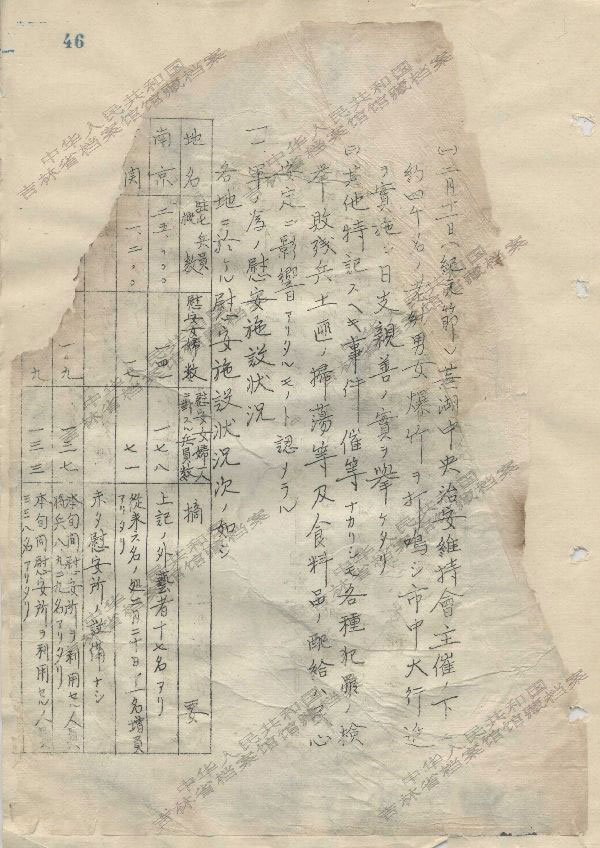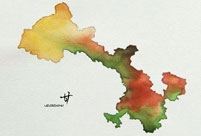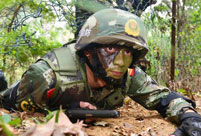 Africans in Guangzhou
Africans in Guangzhou
 Pole dancer shows strength and beauty up in the air
Pole dancer shows strength and beauty up in the air
 College girls call for protection of ecological space on earth
College girls call for protection of ecological space on earth
 Top 10 celebrities driving auto brands
Top 10 celebrities driving auto brands
 10 low-carbon tips to save money
10 low-carbon tips to save money
 Luxury cars make Asia premiere at Auto China
Luxury cars make Asia premiere at Auto China
 Versatile dog
Versatile dog
 Ni Ni covers BAZAAR JEWELRY
Ni Ni covers BAZAAR JEWELRY
 Cherry blossoms reach peak bloom in Washington D.C.
Cherry blossoms reach peak bloom in Washington D.C.
 Top Chinese fashion icons in foreigners' eyes
Top Chinese fashion icons in foreigners' eyes
 |
| This file is a Report (Circular) on the Investigation on Restoration of Public Order” by Commander Ooki Sigeru of Central China Dispatched Kempeitai on Feb 19, 1938 (the 13th year of the reign of Mikado Showa). The 11th item of the file recorded information on comfort facilities in Nanjing and eight surrounding cities and counties, namely Xiaguan, Jurong, Zhenjiang, Jintan, Changzhou, Danyang, Wuhu and Ningguo, including the number of Japanese soldiers, number of “comfort women”, ratio between the two numbers, composition of “comfort women”, as well as the number of Japanese soldiers who made use of the comfort stations within 10 days. An average of 5,734 soldiers made use of comfort stations every day in early February in Zhenjiang. [Photo provided to chinadaily.com.cn] |
A total of 25 files released this time are related to the “comfort women” system of the Japanese military. These records were found in the archives of the Kwantung Kempeitai and the Central Bank of the Puppet Manchurian Regime. The Japanese military transferred funds to the account of public spending for military use to arrange “comfort women” for the troops. This “comfort women” system subjected numerous Asian women to untold humiliation and sufferings.
These archives mainly recorded:
In 1938, the number of Japanese soldiers and percentage of “comfort women” arranged for them in Nanjing and eight surrounding cities and counties, including Xiaguan, Jurong, Zhenjiang, Jintan, Changzhou, Danyang, Wuhu and Ningguo, as well as the number of Japanese soldiers who made use of the comfort stations within 10 days;
Information on fund transfer by the Japanese military for arrangement of “comfort women” under the account name of public spending for military use;
In 1944, the Java Kempeitai reported that some soldiers went to the comfort station without permission and were late for their duty on board military ships;
Violence against “comfort women” committed by Japanese soldiers; and
Disputes between Japanese and Korean “comfort women” in the comfort station.
 Hand-painted maps go viral online; painter's name remains unknown
Hand-painted maps go viral online; painter's name remains unknown 4th Beijing Int'l Film Festival ends
4th Beijing Int'l Film Festival ends Commando elite specializes in sign language
Commando elite specializes in sign language Man photoshops himself into girlfriend's childhood photos
Man photoshops himself into girlfriend's childhood photos Photo story: Stallholders at Beijing Zoo Wholesale Market
Photo story: Stallholders at Beijing Zoo Wholesale Market Artists on backstage
Artists on backstage Beckham launches fund to support youth soccer in China
Beckham launches fund to support youth soccer in China Cherry blossoms hit peak bloom in Washington D.C.
Cherry blossoms hit peak bloom in Washington D.C. Children in ancient costumes learn Zhusuan
Children in ancient costumes learn Zhusuan Cute Shaolin boy melts the hearts of millions
Cute Shaolin boy melts the hearts of millions Giant panda Sijia is back to happy life
Giant panda Sijia is back to happy life Richest Chinese of 2014: half from the mainland
Richest Chinese of 2014: half from the mainland Chengdu - laid-back lifestyle makes happiest city
Chengdu - laid-back lifestyle makes happiest city The backstage of the Fashion Week
The backstage of the Fashion Week College students in Han costumes
College students in Han costumesDay|Week|Month